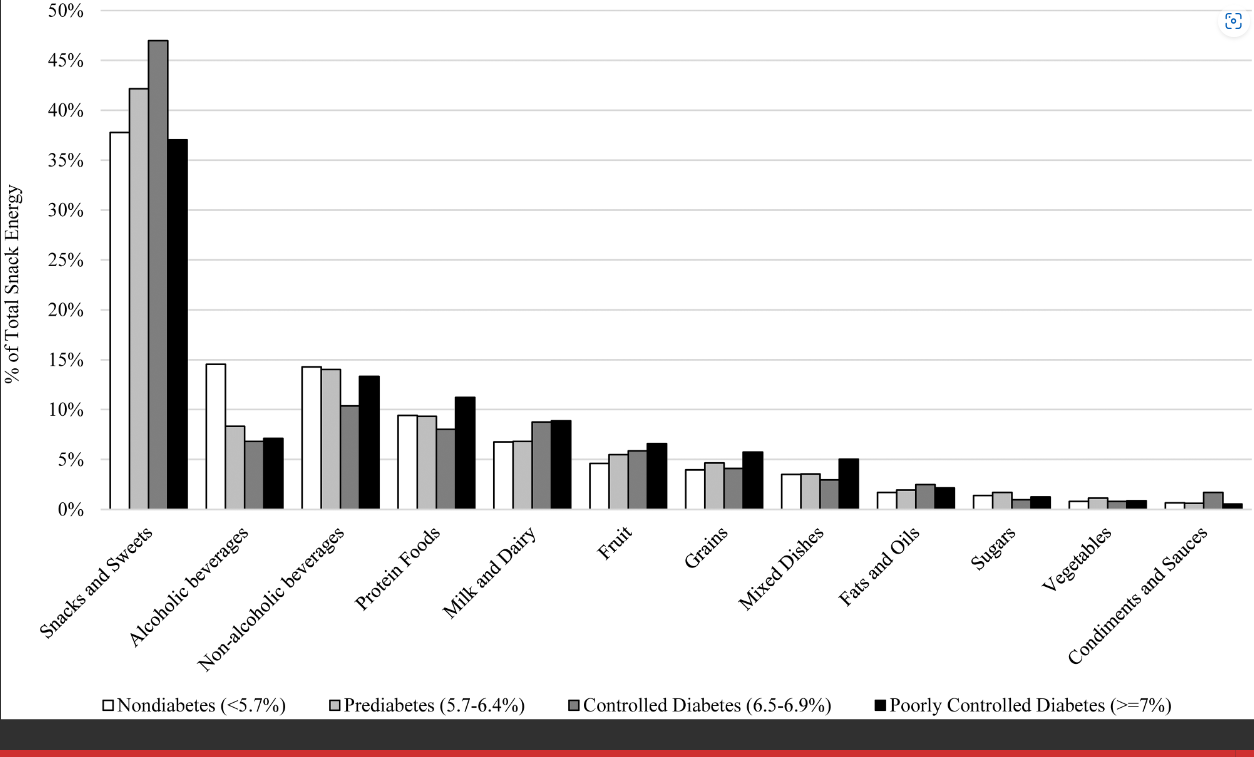
A recent study published in the PLOS Global Public Health has shed light on the crucial role snacks play in our dietary patterns, especially in the context of managing health conditions like diabetes. The extensive research provides valuable insights into how snacks contribute significantly to our total dietary intake.
Lifestyle and Diet: Key Players in Diabetes Management
It’s well-established that lifestyle choices, particularly diet, are pivotal in both the development and management of type 2 diabetes. The Dietary Guidelines for Americans emphasize the importance of overall dietary patterns, like the Mediterranean diet, known for their role in preventing chronic diseases, including diabetes. Understanding the complex role of diet in diabetes management involves looking at both the big picture of dietary patterns and the specifics of individual food and nutrient intakes.
The Underestimated Role of Snacks
The research highlighted that consumers make around two hundred food-related decisions daily. These decisions result in approximately 5–6 “eating occasions,” and typically include 2–3 snacks. This poses a challenge to the traditional Dietary Reference Intake recommendations which focuses on total daily nutrient intake without noting specific guidance for individuals eating the occasional snack. This oversight is critical, considering that snacks contribute a notable portion of our total daily energy intake.
Snacks and Dietary Quality
The eleven-year research analysis of 23,708 adults from the National Health and Nutrition Examination Survey (NHANES) provides striking insights. It reveals that snacking behaviors significantly impact overall dietary quality and patterns, especially among adults with different diabetes statuses. For instance, individuals with diabetes tend to consume fewer calories from snacks compared to those without diabetes. Notably, the study found that snacks typically lack nutritional quality, often being high in calories but poor in nutrients.

Proportion of food sources of energy consumed during snacking occasions across levels of glycemic control. Source: https://doi.org/10.1371/journal.pgph.0000802.g001
Snacking Habits and Diabetes Status
The study also delves into the relationship between snacking habits and diabetes status. It was observed that adults without diabetes tend to consume more calories from snacks, which constitute a higher portion of their total energy intake. This pattern suggests that while the number of snacks might be similar across different groups, the energy content and quality vary significantly, possibly impacting glycemic control.
Implications for Public Health and Nutrition Policy
These findings reinforce the importance of assessing your snack intake throughout the day, especially in terms of both quantity and quality. It’s essential to focus on snacks higher in protein, fiber, and vegetables, while reducing your intake of simple sugars and refined carbohydrates. This research reminds us how our snacking choices significantly affect our overall health and well-being, particularly in the context of diabetes.
So, as you navigate your daily food decisions, considering the impact of snacks on your diet is crucial for long-term healthy decision-making. By focusing on more balanced snack options, you can make strides in improving your overall health and well-being, especially if at risk of diabetes.
